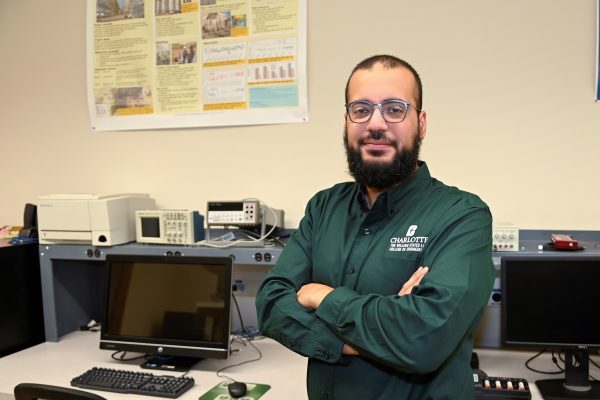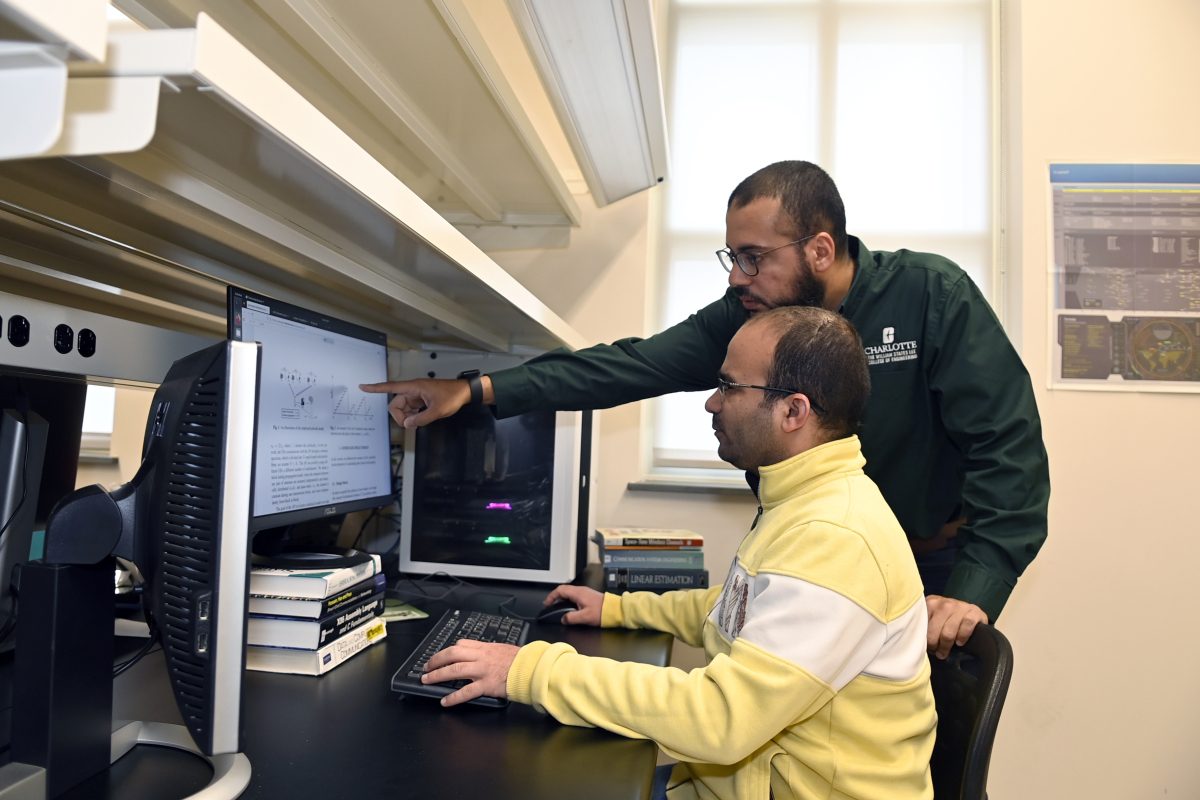Speeding Up the Impact of Data

Dr. Ahmed Arafa, Assistant Professor in Electrical and Computer Engineering, was awarded the Faculty Early Career Development Program (CAREER) award from the National Science Foundation (NSF). This prestigious award supports early-career faculty who are on the path to become role models in research and lead advances in the institution’s mission.
Arafa’s proposal entitled “CAREER: Towards Realizing Timely Information Transfer and Processing for Networked Communication Systems” was awarded $500,000 for a five-year study beginning 2022.
Arafa recognized that the increasing volume of global data is putting strains on how quickly that data can be used toward solutions. To address this challenge, Arafa works to better define and pursue timely exchange of data, or information processing and transfer. A key component of his studies is the novel metric Age-of-Information (AoI), which allows assessment of information freshness.
Arafa’s new approaches have the potential to be applied in several uses, including collaborative autonomous driving, precision healthcare, surveillance videos and more.

Arafa’s research could lead to significant communications technology advancements across industry sectors, including cloud computing, economics and data markets, energy harvesting communications and remote tracking.
“This project has the potential to transform the way information acquisition and processing systems operate under stringent communication and resource constraints,” shared Arafa.
With the William States Lee College of Engineering, Arafa is quickly developing his expertise through his published works in peer reviewed journals, invitations to present his work across the globe, co-authoring book chapters, serving on the editorial board of Frontiers in Communications and Networks Journal, and his role as technical reviewer for numerous publications and conferences.
Arafa joined the W.S. Lee College of Engineering in 2019. In 2021, he was awarded a $250,000 research grant entitled “Timely Computing and Learning over Communication Networks.”
For more detail, see Department of Electrical and Computer Engineering site.